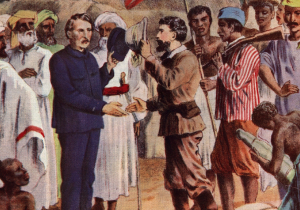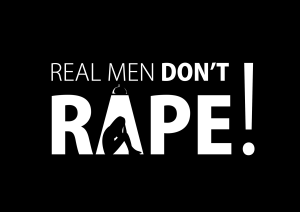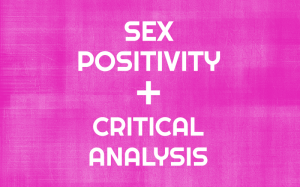“To recognize one’s own role in the oppression of others is not about blame but about opening our eyes to see how power works and how we can redirect it so it doesn’t diminish us all.” —Shona Jackson
I am Taiwanese American, and I still struggle to make sense of what that really means. My relationship to nationhood and to space has been about trying to seek belonging and acceptance.
I am not seen as fully American, yet when I visit Taiwan, it is clear that I am not Taiwanese.
One thing I am clear on: I am not white – though some white folks don’t immediately read me as a person of color.
Most often, I am invisible. I am always from somewhere else.
While I typically self-identify as a second-generation Taiwanese American, there are already a few issues with that identity marker. For example, even though my generational status marks my family’s recent immigration history – which is a critical part of my Taiwanese American ethnic experience – it erases histories prior to contact with the United States.
By I prioritizing my US citizenship, I am demanding to be a part of an imperialist system that literally needs my membership to toot its horn as a “multicultural melting pot.” Yet, my membership as an American citizen is still contested.
Consequently, I am racially categorized as a “perpetual foreigner” – as an Asian American, my belonging on this land, to this nation, and in this space, is constantly in question.
White supremacy has never completely accepted the presence of Asians in the United States and history demonstrates this through institutionalized exclusion, internment, objectification, and hate crimes.
Yet despite knowing that I am unwanted, I still find myself thinking – hoping – that if I can change the “non-American” parts of myself, I can finally experience the benefits of belonging.
And so, I attempt to remove my “Asian-ness.”
In the classroom, I over-perform my version of “American-ness” because I am frustrated when professors confuse me with Asian international students – who get stereotyped as not being able to speak English and, as a result, have to deal with learning from impatient and xenophobic professors.
In order to avoid this, I have found myself betraying members of my community by trying to prove I’m not just “one of them”.
When I am asked the question, “Where are you really from?” I purposefully erase my roots and reply that I am from the United States.
The ways I’ve learned to survive and belong in a country that marginalizes and labels me as a foreigner is rooted in the legacy of oppressing others.
But it’s taken me a while to even understand this phenomenon.
I do racial justice work to address identity-based oppression, and through this work, I’ve started to learn more deeply about colonialism.
I’ve realized that the way I’ve been taught to construct my identity and prioritize my “American-ness is dependent on the impact of United States’ colonial history and current oppressive practices towards Indigenous and Native communities.
And that is just one of the ways anti-racism work often colludes with colonialism. To truly do racial justice work, we, non-Native people of color, can’t solely focus on just the ways we’ve been marginalized or oppressed.
As people of color living in the United States, while we experience many forms of oppression, we are also still complicit in ongoing projects of colonization.
Colonization involves the extension of domination of one group over another, targeting Native groups from US “states and territories,” from places impacted by global capitalism, and groups Indigenous to lands they were stolen and/or displaced from.
While most people of color have experienced forms of colonial control, being a person of color does not automatically carry a direct colonial history.
We – especially those of us doing racial justice work – need to start looking at all the different forms of oppression and how they’re related to one another.
Settler colonialism and racism are connected and co-dependent, but they are not the same thing. Their impacts are experienced differently across communities.
We erase each other’s unique struggles and legacies when we appropriate each other’s oppressions and that’s not accountable racial justice work.
Here are some of the places I’ve started to think through racism and settler colonialism:
1. Understand Racism and Settler Colonialism as Connected Forms of Oppression
In the US, colonialism involves the global extension and expansion of US power and control over Indigenous peoples and nations.
As a very basic definition, settler colonialism involves non-Native peoples’ occupation of Indigenous land.
When European explorers and settlers came to North America, they invaded land where Native communities already lived, established systems of control over natural resources, and then claimed this already inhabited land as their own.
In context, part of my extended family history includes migrating and settling in order to find opportunities for fuller and free-er lives.
While the legacy of Chinese imperialism is devastating, it also provided opportunities for some people. Centuries ago, we left China for Taiwan, where many Indigenous communities already lived. When my family immigrated to the US, we were promised opportunities for mobility, prosperity, and freedom.
However, this opportunity comes at the cost of living on land and doing work on land that was stolen from Native communities.
There is a relationship between the migration of people of color into settler states and the displacement of Native peoples.
Despite thousands of Native tribes with histories that say otherwise, myths like the “land bridge theory,” which claim all Natives are descendants of migrating Asians, erase Indigenous histories by conflating them all together. This theory leverages the perpetual foreigner as a way to discredit Native claim to land.
Our attempts to transform and improve our own oppressive conditions make us complicit in the oppression of others.
It can be really difficult to think through and admit that this space is contested space – that we are tangibly contributing to the racialized oppression of another group of racially marginalized people.
While all communities of color are all oppressed by white supremacy, the histories of oppression are not the same and cannot be compared.
So, colonization is always a form of racialized oppression, but racialized oppression is not always colonization.
This is not to erase, ignore, or deny ways that settler colonialism has also disenfranchised, harmed, and killed people of color throughout history.
For example, transatlantic slavery is a product of both white supremacy and settler colonialism. It is an imperialist project that took Indigenous people from their land and sent them to places that were stolen from other groups of Indigenous people. Slavery is stolen people forced onto stolen land.
Another example of imperialistic projects includes ways US military occupation and expansion displaces people. Many refugees come to the US onto lands from where Indigenous nations were originally displaced.
While there are differences between those who were forced here as slaves, those who are forced to migrate.
People of color live on land that is appropriated and contested, where many Native people, including Mexicans, are denied nationhood and access to their own lands.
In the US and globally, we need to begin assessing how the colonization of land and Indigenous peoples inform collective understandings of race and racism and address both racism and settler-colonialism.
2. Examine How Settler Colonialism Creates Tensions Between Anti-Racism Work and Decolonization
White supremacy and imperialism support themselves in different ways. In the US, white supremacy is supported by anti-Black racism, racism that treats different communities of color as perpetual foreigners, and the elimination of Native peoples.
This can be seen on a daily basis by everyday acts of police brutality, unrelenting questioning of citizenship status, or the erasure of Native history in the classroom.
Racial hierarchies are produced to protect and prevent access. For instance, the “one drop” rule created a social structure to prevent anyone with a Black ancestor from accessing the basic rights that White people are given. On the flip side, Native Americans with any amount of “white blood” become “less Native.”
Kanaka Maoli scholar Kēhaulani Kauanui writes that whiteness becomes a genocidal project of disappearance for Native peoples.
As white racial identity is imposed on Indigenous people, being seen as white erases indigeneity and thus justifies dispossession of Indigenous identity and allows non-Indigenous entitlement to exclusive resource use and ownership.
Settler colonialism is fascinated with the notion of blood as way to justify who gets what.
To gain privilege and access, people of color have still had to work within the limits of white supremacy.
As an Asian American, I could have the illusion of freedom and equality by participating in both anti-black racism and the displacement of Indigenous sovereignty.
Often, our anti-racism work abides by those same oppressive rules set by the settler state.
Remember the ways that white supremacy supports itself by relying on oppressed communities to do the work of the oppressor.
3. Learn That If You’re on US Land, You’re Complicit in Settler Colonialism
Settler identity does not only extend to white-identified folks. People of color, even though we experience histories of oppression by the state, can be settlers too. Thinking through your relationship to settler colonialism is tricky.
Being complicit in the marginalization of Indigenous communities does not mean people are getting the same benefits from the power system.
While all settlers do not benefit equally from settler colonialism, all people who are not Indigenous living in a settler colonial situation are settlers.
Thinking about complicity in settlerhood, rather than thinking of it as merely privilege, we can start understanding settlerhood as a complex system that we’re part of.
We must acknowledge that we are doing this work on occupied Indigenous land. From here, we can also move from acknowledging settler privilege towards challenging and dismantling colonialist thought and behavior in the communities we identify ourselves to be part of.
To begin doing anti-racism work from a critical and intersectional perspective, we need to look at solutions to issues in a nuanced way that engages these different intersections.
For example, it would be problematic if, as a Taiwanese American person, I tried to center all issues of race on my history and experience. What’s good for one group isn’t good for everyone.
The elimination of Indigenous communities is not just several events spread throughout history, but ongoing and structural. We might know tidbits of Native American and Indigenous history, but often, we don’t think about it as relevant to experiences today.
This isn’t about a politics that displaces the importance of immigrant and migrant rights, or the dire importance of movements like Black Lives Matter.
It’s about making Indigenous issues more visible.
Beginning to think through my complicity in settler colonialism has helped me dig deeper into my understandings of racial oppression.
Some of the things I’ve started to do include:
1. Rethinking My Own History of Migration (And My Relationships with Land and Space)
Where are you really from?
Returning to that irking question that is often used to remind Asian Americans we’re not really from “here” (wherever here is), I’ve begun to reflect on this question for myself.
I ask my parents to tell me stories about their history. I want to know about my grandparents, and all those who came before. Where were they before Taiwan? Whose stories does ours connect with? I need to begin understanding ways my history includes centuries of colonialism, as both oppressor and oppressed.
This includes knowing whose land I am living on now. What are the histories and current struggles of the people originating from here?
Using the term settler begins to challenge non-Native peoples status on this land and forces colonialism to the forefront of consciousness.
The work of an accomplice in anti-colonial struggle is attacking colonial projects and ideologies, starting with articulating your relationship to the Indigenous people whose lands you are occupying.
2. Learning Ways to Stand in Solidarity with Pacific Islanders
While I identify as APIA (Asian Pacific Islander American), I have not done the best job of standing in solidarity with the Pacific Islander community.
While APIA communities share stories of displacement and exclusion, absorbing Indigenous Pacific Islanders’ experiences into the Asian American experience erases a separate history of struggle.
As we dismantle racism, we also need to make room for nuance in identity. How am I standing alongside my community that identifies as Native and Asian? As Black and Asian?
Racial justice work cannot subsume Native movements. Native struggle cannot simply become incorporated into other struggles; it demands solidarity on its own terms.
Non-Native people of color need to learn how to become more accountable to experiences, voices, leadership, and needs of Indigenous peoples.
One example of mutual empowerment and accountability is looking at the anti-colonial migrant justice movement of No One Is Illegal. Beyond demanding citizenship rights for migrants, the movement works in solidarity with Indigenous communities to challenge the idea of borders.
We’re not diluting movements, we’re strengthening them.
3. Working on Crossing My Privilege Line
This is a place where I can get stuck, as I practice accountability towards an ongoing, consistent commitment in the process and goal of decolonization.
It’s about believing that there are alternative models that will mutually benefit everyone without recreating oppressive structures.
We do not need systems from our country’s white supremacist and settler colonialist heritage to be liberated, whole, and happy.
So, how willing am I to experience “inconvenience” or “discomfort” in this process, whether that’s physical or emotional?
Harsha Walia writes, “Being responsible for decolonization often requires us to locate ourselves within the context of colonization in complicated ways – often as simultaneously oppressed and complicit.”
This involves developing authentic conversations, relationships, and commitments to Native communities. I have to get comfortable with centering myself in my social position and location without centering my self-interest.
I have so much work to do on my own end. A way to start is to begin articulating and disrupting my complicity in settler colonialism.
For example, buying gas from big oil companies is complicity in settler colonialism since those companies rely on natural resource exploitation from Native lands. We can actively support Native demands to decolonize the environment by calling legislators to oppose pipelines.
Since starting to understand more the ways racism and settler colonialism are interconnected, I can also understand more clearly my stake in fighting these oppressive systems of power.
I must see my responsibility in the problem and the solution.
This is the time to listen, unlearn, relearn, and then fight.
To learn more about settler colonialism, you can check out:
- We Can’t ‘Get Over It’: 4 Ways Understanding Past Wrongs Can Create Better Indigenous Allies
- From Truth Telling to Land Return: 4 Ways White People Can Work for Indigenous Justice
- 3 Myths about Native Hawaiians You Ought to Know Before Visiting Paradise
[do_widget id=’text-101′]
Rachel Kuo is a Contributing Writer for Everyday Feminism and a scholar and educator based in New York City. Her professional background is in designing curriculum and also communications strategy for social justice education initiatives. You can follow her on Twitter @rachelkuo.
This article written with a significant amount of input from Taté Walker, who is a Contributing Writer for Everyday Feminism. She is Mniconjou Lakota and an enrolled citizen of the Cheyenne River Sioux Tribe of South Dakota. She is a freelance journalist who lives in Colorado Springs. She blogs at Righting Red and can be reached on www.jtatewalker.com. Follow her on Twitter @missustwalker.
Search our 3000+ articles!
Read our articles about:
Our online racial justice training
Used by hundreds of universities, non-profits, and businesses.
Click to learn more
Most Read Articles
- « Previous
- 1
- …
- 30
- 31
- 32




















